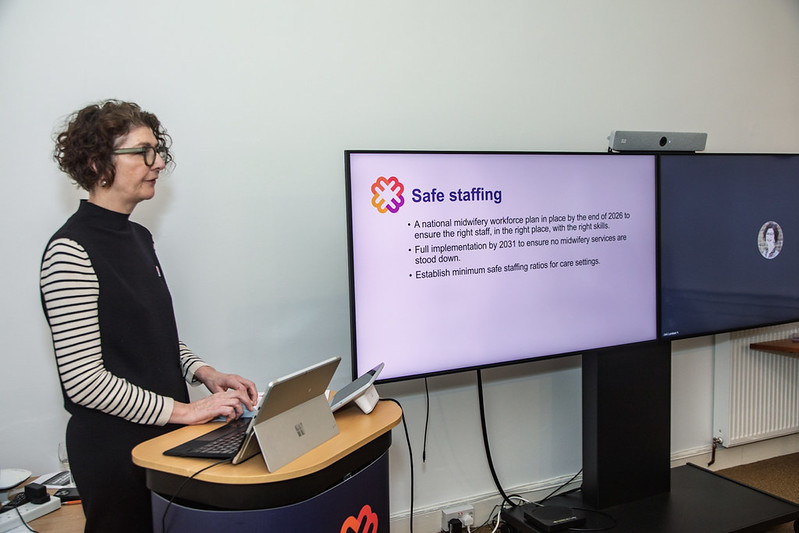Black women are more than twice as likely to die compared with white women, more likely to experience life-threatening complications, more likely to be admitted to ICU, more likely to give birth preterm, and to lose a baby to stillbirth.
To add to this list of horrors, another stark statistic; Black women are twice as likely to be hospitalized with perinatal mental illness than white women.
The Motherhood Group and Maternal Mental Health Alliance, of which the RCM is a founding member, launched its report which sadly outlines the problems Black women face accessing appropriate mental health care and support. It makes key recommendations for national and local health care systems that must be implemented if we are to see these statistics improve.
In a packed room in Parliament, I heard powerful speeches from MPs, clinicians and women with lived experience, all describing dreadful failures in care, the systems and leadership that resulted in missed opportunities, poor outcomes and lost lives.
While progress has undeniably been made in expanding specialist perinatal mental health care across the UK, gaps still remain. Too many women still cannot access the right care, at the right time and in the right places.
Black women lack trust in mental health services’ ability to help them with the issues they face in motherhood. Care has not been culturally competent, personalized, or attentive of Black women. Structural racism has been found to be one of the main causes of significant inequities in the diagnosis of perinatal mental health disorders, as well as being a barrier to accessing treatment.
Black women reported higher levels of stressors at multiple time points across pregnancy, compared to women of all other racial and ethnic groups (Matthews et al. 2021 & Chambers et al. 2020) and these intersecting factors compound the risks.
Transforming care means putting the voices and needs of Black women and their communities at the centre of decision-making. Culturally sensitive, trauma informed, community-based social interventions are needed as a matter of urgency.
The Motherhood Group have taken these issues to the heart of policymaking, and Parliamentarians need to listen hard and act now.


